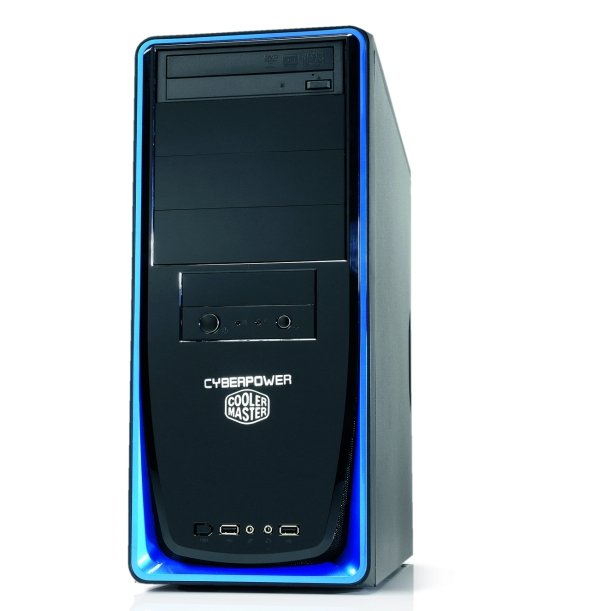
You have to tip your hat to Cyberpower for this one. When PC Gamer asked their engineers to create a gaming PC for less than £500 they pulled a crafty trick I wasn't expecting. I've seen overclocked CPUs sold off the shelf in low cost systems, but hacked CPUs – that's a whole new one on me.
Inside the Ultra Triton SE the component list is almost identical to the more expensive Advent CBE1401. It has the same Phenom II processor, the same graphics card and the same allowance of RAM.
The Phenom II X2 550 processor is unusual, however, in that it's not a dual core. It's a quad core with two of the cores turned off, usually because of faults in the redundant cores or to meet demand for dual core chips. Cyberpower's cunning trick has been to turn on the disabled cores.
[MPU]It's a well documented and very easy hack, which can be done in the AMD Overdrive driver control panel. It isn't 100% reliable with all X2 550s, because there's often a reason the two cores are disabled, but we had no stability problems with this system. And obviously it comes with the company's standard retail warranty in its altered state. It also shows how essential four cores are becoming. In games that aren't heavily multithreaded, such as World in Conflict, it's performance edge isn't pronounced. With newer engines, it wins every benchmark hands down.
As for future-proofing, the AM3 socket motherboard will also take a 'proper' quad core upgrade for the foreseeable future, and possibly even be compatible with AMD's forthcoming six-core CPUs available later this year.
If I could change one thing about the Ultra Triton SE, it would be the chassis. The case is smaller but slightly quieter than the Advent machine, but still a bit more noisy than the excellent Gigabyte chassis used in the YoYo Tech challenger. All things considered, a minor quibble.
The Ultra Triton SE is outstanding value for money. You'll have to spend considerably more before the performance starts to get significantly better. It's the first budget machine I've seen which makes me seriously consider rebuilding the PC Gamer Rig from the ground up along similarly parsimonious lines.
Keep up to date with the most important stories and the best deals, as picked by the PC Gamer team.
Adam Oxford
PC Gamer is the global authority on PC games—starting in 1993 with the magazine, and then in 2010 with this website you're currently reading. We have writers across the US, Canada, UK and Australia, who you can read about here.


